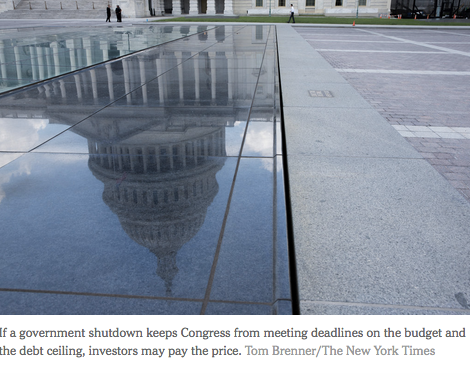“If we have to close down our government, we’re building that wall.”
So proclaimed President Trump at a rally in Arizona on Tuesday, raising the specter of a federal government shutdown if Congress fails to provide the money to put up a wall between Mexico and the United States.
And with those words, the president managed to rattle investors in two big financial markets — United States Treasuries and stocks.
In recent years, government shutdowns have become so common that markets have either embraced them or shrugged them off. But as investors absorb the possibility of a closure this fall, market tremors are likely to intensify, experts say. The past will not necessarily be prologue this time around.
That’s the view of Isaac Boltansky, director of policy research at Compass Point Research & Trading in Washington. Noting that during the past three shutdowns, the stock market was unfazed by the political gamesmanship, Mr. Boltansky said, “I think this time will be worse because of the uncertainty from President Trump.”
Investors are grappling with two matters right now: the need to raise the nation’s debt ceiling in September so the government can pay its obligations, and the desire to have a federal budget in place by Oct. 1 to avoid a shutdown.
Earlier this week, Treasury Secretary Steven Mnuchin tried to reassure investors on the first matter. “We’re going to get the debt ceiling passed,” Mr. Mnuchin vowed at an event in Louisville, Ky., on Monday. He also predicted that the ceiling would be raised cleanly — that is, without spending reforms attached to the increase that are intended to move the government toward a balanced budget.
But the next day Mr. Trump invoked the government shutdown, spooking Treasury investors. Faced with the possibility of problems with both the debt ceiling and a shutdown, investors holding T-bills maturing in early October began selling. Short-term Treasury investors, like the institutions that oversee money market funds, can’t afford to wait around to see if they’ll be paid on time. It’s easier to bail out of the holdings that could be affected.
Stocks also weakened on the prospect of a shutdown — a very different investor response than has been seen during recent government closures.




